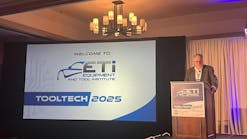Volkswagen has signaled its commitment to electric vehicle manufacturing with the successful transformation of its Zwickau, Germany, plant into a dedicated electric vehicle production facility. Production has officially begun on the Volkswagen ID.5 and ID.5 GTX electric vehicles.
The site is the first large-scale facility of any volume manufacturer worldwide to switch over all production from internal combustion engine vehicles to electric vehicles, the company said. Six models from the Volkswagen, Audi and CUPRA brands will now be manufactured in Zwickau based on the modular electric drive matrix (MEB). The plants in Emden (ID.4), Hanover (ID. Buzz) and Chattanooga (USA, ID.4) will be added to the electric vehicle production network this year. Volkswagen is expecting to build 1.2 million all-electric-vehicles at its sites in Europe, the USA and China in 2022.
“Volkswagen will continue to increase the pace of e-mobility in 2022 with its 'Accelerate' strategy and the expansion of the model portfolio. The Zwickau production plant has paved the way for the group to do this with six ramp-ups from three brands in just 26 months," said Christian Vollmer, member of the board of management of Volkswagen brand responsible for production. "The knowledge and experience gained will help us to continue to electrify our production network quickly and efficiently.”
Since 2018, around US$1.35 billion has been spent on converting the Zwickau plant from ICE vehicle production into a digital, flexible, highly efficient showcase factory for the manufacture of electric vehicles. Increasing use is being made of technology such as smart Industry 4.0 robots and driverless transportation systems that take components to the assembly line completely autonomously.
Close to 40 percent of the investment volume went into the enhancement and expansion of the body shop alone. This area’s already high level of automation now reaches nearly 90 percent, and the number of state-of-the-art robots has risen from 1,200 to 1,625. Automation in the assembly line has also been almost doubled to 28 percent, and production ergonomics have improved significantly, the company said. Only jobs involving monotonous or physically strenuous work have been affected, such as working with one’s hands above one’s shoulders or overhead work.
“Switching over to electric vehicle production was exactly the right decision for the Zwickau plant. Demand for our models is booming, and our team’s jobs will be safe for years to come," said Jens Rothe, chairman of the General Works Council at Volkswagen Saxony. "This is first and foremost a fantastic achievement by our workforce.”
RELATED:
Volkswagen intends to be net carbon neutral by 2050 at the latest. The interim target is to cut CO2 emissions per vehicle by 40 percent in Europe by 2030. The production, including supply chains, and operation of electric cars are to be made net carbon neutral.
Added to this is the systematic recycling of the high-voltage batteries from old electric vehicles. The goal is the full electrification of the new vehicle fleet. By 2030, at least 70 percent of all Volkswagen’s unit sales in Europe will be all-electric vehicles – substantially more than 1 million vehicles. In North America and China, the share of electric vehicles in unit sales is expected to reach at least 50 percent. In addition, Volkswagen will be launching at least one new electric car each year.
Voice Your Opinion!
Voice Your Opinion!

